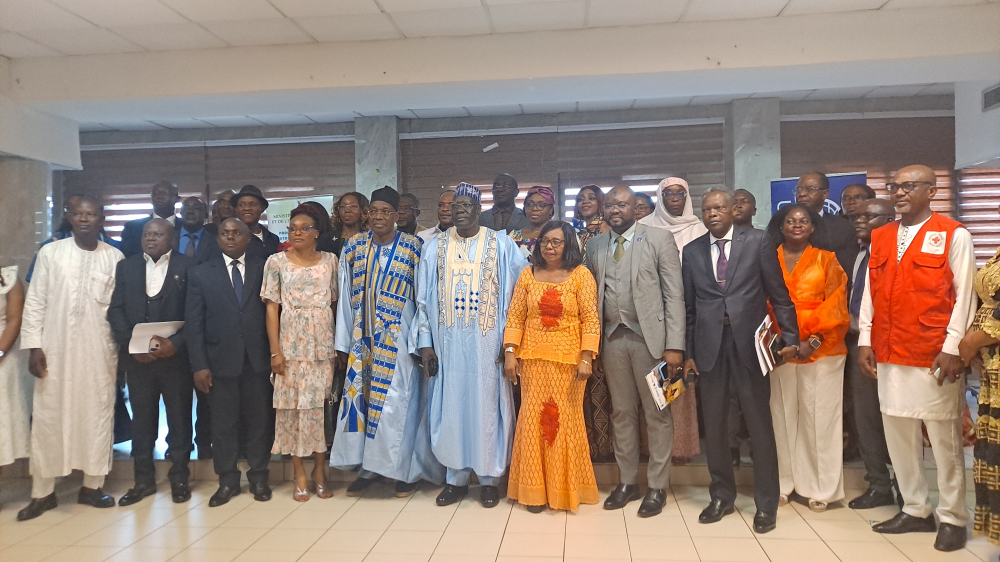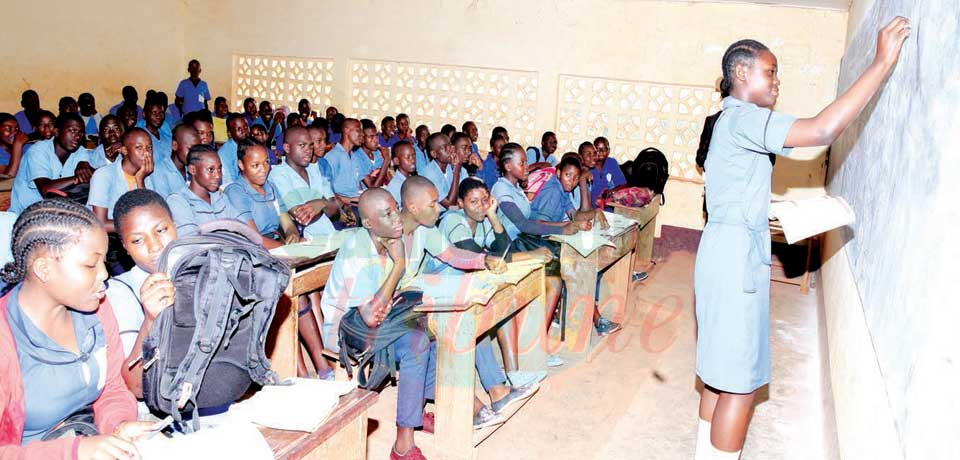Labour Mobility : Towards A National Rights-based, Gender-sensitive Policy
- Par Kimeng Hilton
- 09 déc. 2024 18:34
- 0 Likes

Stakeholders began meeting in the Cameroonian capital, Yaounde, on December 9, 2024 to harmonize indicators and validate the coordination mechanism.
In the context of international migration, labour migration is today one of the most important aspects of the socio-demographic dynamics of most developing countries. This is particularly the case in Africa where labour migration flows have intensified over the last two decades. And where the estimated number of international migrants of working age increased from 13.2 million in 2010 to 20.2 million in 2019, according to the African Union.
Crossroads Of Migration Routes
This phenomenon is also entirely true for Cameroon due to its strategic geographical position in the heart of Africa. And therefore, at the crossroads of the migratory routes of most Regional Economic Communities, RECs of the continent. Thus, Cameroon has established itself over the years as a country of origin, transit and destination for a significant number of migrant workers. Similarly, Cameroon welcomes many migrant workers from diverse backgrounds and exports a significant labour force to other countries in Africa, Europe, Middle East and the Americas, etc.
Drivers Of Employment
It is in this context, where migratory flows linked to employment are increasingly determining factors for development that African Union, AU Heads of State and Government in 2015 committed to promote employment policies conducive to intra-African mobility of labour. And the migration of African workers to other regions of the world for the development of the continent through dedicated instruments and tools. The AU-ILO-IOM-ECA Joint Programme on Labour Migration Governance for Development and Integration in Africa (or the Joint Labour Migration Programme), JLMP, is one of these instruments.
Reason For Workshop
It is for this reason that the Cameroon government and the International Organisation for Migration, IOM on Monday, December 9, 2024 in Yaounde, began holding a two-day political dialogue workshop. On harmonizing indicators of the Draft Action Plan for Labour Migration and validating the coordination mechanism for the implementation of a Rights-based and Gender-sensitive National Labour Migration Policy for Cameroon.
Inclusive, Participatory Approach
“Cameroon’s labour migration policy was conceived with the assistance of the African Union, but needed an inclusive and participatory approach before adoption and implementation. The workshop thus enables stakeholders to say if their expectations have been sufficiently taken into account based on various indicators – budgeting, financing... because migration is a driver of development, a great source of wealth,” said Mrs. Angelique Mbouzie Attanda, Head of the Division for Standards and International Cooperation in the Ministry of Labour and Social Security.
Great Source Of Remittances
“It is in the interest of Cameroon for its labour force to migrate because they will generate remittances. Because the migration of labour evolves fast, there is need for a legal framework to manage it. Cameroon is signatory to the Global Partnership on Migration, which we need to implement as well as international labour conventions which Cameroon ratified. All this requires a national strategy on the management of labour migration, which was already endorsed by stakeholders. It is this endorsed document that the workshop is reviewing before implementation. This includes aspects like social protection, the return of the Diaspora....which all affect labour migration,” Mrs Mbouzie noted.
Role Of Trade Unions
“It is not long since Cameroon had a labour migration policy, on which we have been working in the past two years. Cameroon is one of the few African countries with their own labour migration policy, which is an advantage,” Mouangue Pierre Lovis, Secretary General of CSAC trade union said.
Migration Information Office
“In implementing the policy, there are key activities to be undertaken. For example, there will be an information centre to assist Cameroonian workers travelling abroad and foreign workers coming into the country. Migrating workers need to understand what is required of them in the host country. Likewise, those arriving in the country need to be protected by trade unions against any abuse by their employers. The labour information centre is therefore important because workers do not always know where to turn to,” Mouangue pointed out.
Greater Than Believed
“Intra-subregional labour mobility is by far greater than labour migration from the global South to the global North. For example, there are far more Nigerians, Malians... in Cameroon than the number of Cameroonians who have travelled to the West,” Mouangue noted.
Gender, Rights Issues
“It is important to have a pertinent and inclusive national policy on labour mobility that takes into account gender and human rights aspects. IOM is technically assisting the Cameroon government in this initiative by ensuring that certain principles and contexts are taken into account,” said Dr Abdel Rahmane Diop, the International Organization for Migration, IOM Chief of Mission to Cameroon.
IDPs Not Left Out
According to him, the number of Internally Displaced People, IDPs in Cameroon today is almost a million. “We cannot talk about labour mobility without including a million Cameroonians. This is what we mean by inclusiveness. The crisis in the North West and South West Regions is also a labour matter. How do we ensure that job creation is contributes to the efforts of government to find a solution to the problem for peace to return to the two regions?” Dr Diop questioned.
IOM Pledge
“Once the document is adopted, a budget will be prepared for its implementation and partners of the United Nations System will mobilise other stakeholders – including the private sector, the Diaspora. We will join hands to assist Cameroon in the optimal implementation of the policy,” the IOM chief pledged.
African Union Plan
Meanwhile, the Joint Labour Migration Programme, JLMP provides major support to the achievements of the first 10-year implementation plan (2013-2023) of Agenda 2063 o...
Cet article complet est réservé aux abonnés
Déjà abonné ? Identifiez-vous >
Accédez en illimité à Cameroon Tribune Digital à partir de 26250 FCFA
Je M'abonne1 minute suffit pour vous abonner à Cameroon Tribune Digital !
- Votre numéro spécial cameroon-tribune en version numérique
- Des encarts
- Des appels d'offres exclusives
- D'avant-première (accès 24h avant la publication)
- Des éditions consultables sur tous supports (smartphone, tablettes, PC)
Reactions
De la meme catégorie
Checkmating Irregular Migration : New Project Targets Over 1.5 Million Youth
- 07 janv. 2025 14:13
- 0 likes














Commentaires